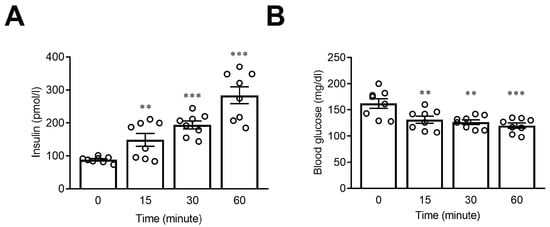- Joined
- Apr 17, 2024
- Messages
- 500
- Reaction score
- 939
Effect of artificial sweeteners on insulin resistance among type-2 diabetes mellitus patients

Effect of artificial sweeteners on insulin resistance among type-2 diabetes mellitus patients
Incidence of diabetes mellitus has increased over the past few years, mainly due to our eating habits and physical inactivity. This also includes the use of artificial sweetening agents which have broadly replaced other forms of sugars and have shown ...
Introduction:
Incidence of diabetes mellitus has increased over the past few years, mainly due to our eating habits and physical inactivity. This also includes the use of artificial sweetening agents which have broadly replaced other forms of sugars and have shown a paradoxical, negative effect on blood glucose. Ingestion of these artificial sweeteners (AS) results in the release of insulin from pancreas which is mistaken for glucose (due to their sweet taste). This increases the levels of insulin in blood eventually leading to decreased receptor activity due to insulin resistance.Results:
The HOMAIR values for Group A and B ranged from 0.9–24.33 and 0.12–10.83 with mean values 7.39 and 2.6, respectively, showing that the ones who used AS had a higher insulin resistance. The study also showed that the duration of use of artificial sweeteners had a direct impact on insulin resistance.Is the Use of Artificial Sweeteners Beneficial for Patients with Diabetes Mellitus? The Advantages and Disadvantages of Artificial Sweeteners

Is the Use of Artificial Sweeteners Beneficial for Patients with Diabetes Mellitus? The Advantages and Disadvantages of Artificial Sweeteners
Artificial sweeteners have been developed as substitutes for sugar. Sucralose, acesulfame K (ACE K), aspartame, and saccharin are artificial sweeteners. Previously, artificial sweeteners were thought to be effective in treating obesity and diabetes. Human ...
Abstract
Artificial sweeteners have been developed as substitutes for sugar. Sucralose, acesulfame K (ACE K), aspartame, and saccharin are artificial sweeteners. Previously, artificial sweeteners were thought to be effective in treating obesity and diabetes. Human meta-analyses have reported that artificial sweeteners have no effect on body weight or glycemic control. However, recent studies have shown that artificial sweeteners affect glucose absorption in the intestinal tract as well as insulin and incretin secretion in humans and animals. Moreover, artificial sweeteners alter the composition of the microbiota and worsen the glycemic control owing to changes in the gut microbiota. The early intake of ACE K was also shown to suppress the taste response to sugar. Furthermore, a large cohort study showed that high artificial sweetener intake was associated with all-cause mortality, cardiovascular risk, coronary artery disease risk, cerebrovascular risk, and cancer risk. The role of artificial sweeteners in the treatment of diabetes and obesity should be reconsidered, and the replacement of sugar with artificial sweeteners in patients will require the long-term tracking of not only intake but also changes in blood glucose and weight as well as future guidance based on gut bacteria data. To utilize the beneficial properties of artificial sweeteners in treatment, further studies are needed.Long-Term Consumption of Sucralose Induces Hepatic Insulin Resistance through an Extracellular Signal-Regulated Kinase 1/2-Dependent Pathway

Long-Term Consumption of Sucralose Induces Hepatic Insulin Resistance through an Extracellular Signal-Regulated Kinase 1/2-Dependent Pathway
Sugar substitutes have been recommended to be used for weight and glycemic control. However, numerous studies indicate that consumption of artificial sweeteners exerts adverse effects on glycemic homeostasis. Although sucralose is among the most extensively utilized sweeteners in food products...
Abstract
Sugar substitutes have been recommended to be used for weight and glycemic control. However, numerous studies indicate that consumption of artificial sweeteners exerts adverse effects on glycemic homeostasis. Although sucralose is among the most extensively utilized sweeteners in food products, the effects and detailed mechanisms of sucralose on insulin sensitivity remain ambiguous. In this study, we found that bolus administration of sucralose by oral gavage enhanced insulin secretion to decrease plasma glucose levels in mice. In addition, mice were randomly allocated into three groups, chow diet, high-fat diet (HFD), and HFD supplemented with sucralose (HFSUC), to investigate the effects of long-term consumption of sucralose on glucose homeostasis. In contrast to the effects of sucralose with bolus administration, the supplement of sucralose augmented HFD-induced insulin resistance and glucose intolerance, determined by glucose and insulin tolerance tests. In addition, we found that administration of extracellular signal-regulated kinase (ERK)-1/2 inhibitor reversed the effects of sucralose on glucose intolerance and insulin resistance in mice. Moreover, blockade of taste receptor type 1 member 3 (T1R3) by lactisole or pretreatment of endoplasmic reticulum stress inhibitors diminished sucralose-induced insulin resistance in HepG2 cells. Taken together, sucralose augmented HFD-induced insulin resistance in mice, and interrupted insulin signals through a T1R3-ERK1/2-dependent pathway in the liver.

